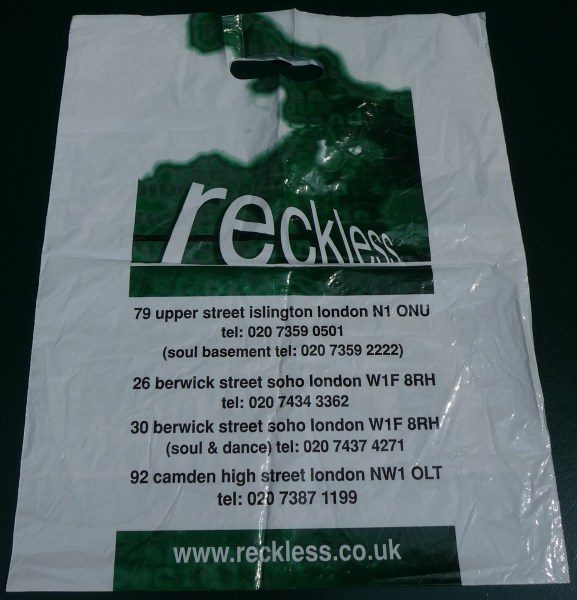

With vinyl, there is a difference in phono cartridges that will have a similar effect as the CD player's DAC does as to how pure the playback is."Ĭhase Pellerin Dave Evans, co-founder of Audioengine Take CD for instance, it has to be decoded from digital to analog, and the capabilities of the digital-to-analog converter (DAC) will have direct impact on the fidelity. To distinguish the different levels of hi-fi comes down to the technology built into the equipment. To be considered hi-fi, the equipment must be capable of playback with very low distortion, low signal-to-noise ratio, dynamic headroom and channel separation just to name a few. "When used to describe equipment, 'hi-fi' means to be able to reproduce recordings of all types CD, vinyl or streaming. The following quotes have been edited for clarity and brevity.Ĭharlie Randall, co-CEO of the McIntosh Group Of course there's no one answer, but here's what they had to say. We asked seven industry experts and audio enthusiasts for their modern definition of hi-fi. So should the bar for hi-fi go up in response? In the past, hi-fi was generally defined as audio that was CD or vinyl quality (16-bit/44.1 kHz), but today you can listen to higher resolution audio files (such as 24-bit/192kHz or even even 32-bit/384 kHz). The tricky bit in the modern day is that so many mediums - CDs, vinyl, streaming, even tapes - are in play, and different formats can have different fidelities. Many of today's music streaming services (including Apple Music, Amazon Music HD, Tidal, Deezer and Qobuz) offer a lossless streaming tier, meaning you can listen to digital audio files that are the same or better audio quality than a CD. What hi-fi is may be a point of contention, but lossy compression certainly does not fit the bill. In the 90s, quality took a detour as the age of Napster and the iPod ushered in the dominance of compressed digital audio files like the MP3, which destroy data in their quest to get file size down. Perhaps more importantly, CDs were one of the first mainstream digital audio formats, which helped pave the way to today's digital streaming age. In the early 1980s, CDs came along and eliminated a lot of the extra noise, like the crackling and other imperfections that like vinyl is now sought out for. "It made such an impact on recorded sound that people started referring to a ‘Hi-fi’ as a ‘Stereo’," explained Alex Munro, the brand director at Q Acoustics. With the addition of a second speaker, or second channel, stereo was able to add another layer of realism to the music. In the 1970s, the definition of hi-fi evolved with the introduction of stereo sound. always on the lookout for new artists, limited-edition pressings, imports and unique items.” It’s a music lover’s Mecca in the Midwest.The Argument Against a Wireless Hi-Fi System “But we take pride in stocking everything from, say, the new Beyoncé CD to a cassette by an up-and-coming local artist to a reissue of a mostly unknown African psychedelic rock band or an obscure techno 12-inch.

“Our best sellers are primarily indie-centric titles on labels like Matador, Sub Pop, 4AD, Merge, etc.,” Reckless’ music buyer Matt Jencik told Bandcamp Daily in 2016. Its stores contain bins and bins of used vinyl with lived-in title cards, but it also makes it a point to highlight new music.
#Reckless records high fidelity movie
The store, which originally had London roots, has a vibe so homey that its Wicker Park location inspired the look of the movie High Fidelity. “We always have something the really avid music buyer will want to buy.” - KORY GROWįor 30 years, Reckless Records has been the Windy City’s go-to indie spot for CDs, vinyl and DVDs currently, it has three locations open seven days a week in different neighborhoods. “The thing that makes the Fetus different from most stores is that we have a diverse customer base,” buyer Steve Pearson once told CMJ. Over the past 50 years, it’s become a local institution: One of the owners got a citation for displaying a caricature of John Lennon and Yoko Ono’s Two Virgins cover with Richard and Pat Nixon’s faces on them and an employee was once arrested for putting a “peace flag” in a window. The store opened in 1968 and has locations in Minneapolis and Duluth, and it stocks new and used CDs, DVDs and LPs, as well as other accouterments like books, toys, clothes and other accessories. Just a week before his death, he’d stopped in to buy a clutch of CDs in support of Record Store Day, according to MPR News. In fact, it’s a record store that is so cool, it was one of Prince’s favorite local shops. Whether you find the name Electric Fetus disgusting or trippy, you can’t help but wonder what goes on in a place called that.


 0 kommentar(er)
0 kommentar(er)
